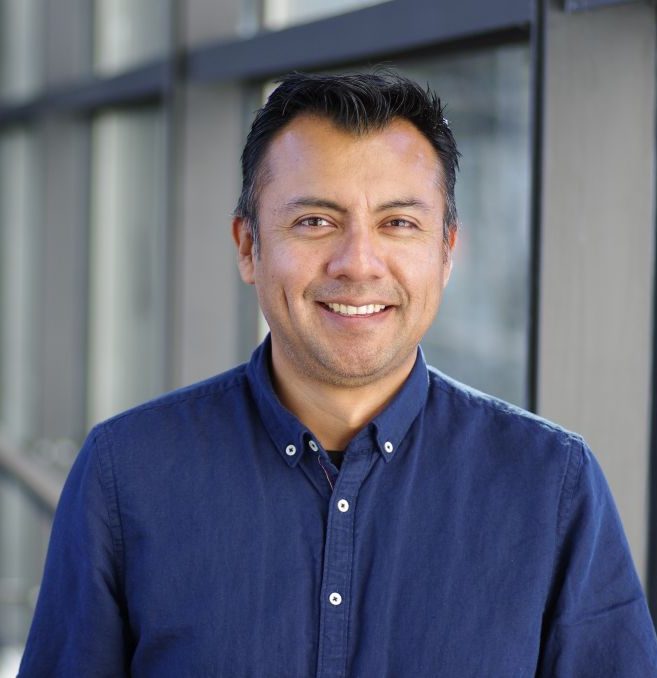Carlos A. Martínez-Huitle
2023 Conference
- General Information
- Symposia
- Atomic Layer Deposition
- Biomaterials and Polymers
- Characterization and Metrology
- Luminescence Phenomena: Materials and Applications
- Microelectronics and MEMS
- Multifunctional and Magnetic Materials
- Nanostructures
- Plasma and Vacuum
- Renewable Energy: Materials and Devices
- Semiconductors
- Tribology, Surfaces and Interfaces
- Theory and Simulation of Materials
- Thin Films
- Science Outreach
- Congress Registration
- Plenary Lectures
- Short Courses
- General Program
- Commitees
- Posters
- Awards/Grants
- Fees
- Hotel Accomodation
- Sponsors and Exhibit

Prof. Carlos A. Martínez-Huitle
Universidade Federal do Rio Grande do Norte Brazil
He is graduated in Chemistry at Universidad de las Américas-Puebla (México) under supervision of Prof. Marco Antonio Quiroz Alfaro. After a work experience in Ciba-Specialty Chemicals (currently, BASF), he moved to Ferrara (Italy) where he received his PhD in Chemical Sciences at the University of Ferrara under supervision of Prof. Achille De Battisti. During the same period, he worked as visiting scientist in the group of Prof. Christos Comninellis at the EPFL Institute (Switzerland).
From since 2005 to 2008, he has served as faculty member in the Department of Chemistry at the University of Milan. In 2008, he also moved to Brazil where he currently is a Full Professor in the Institute of Chemistry at the Federal University of Rio Grande do Norte. He was awarded with the “Oronzio and Niccolò De Nora Foundation Prize” by the Italian Chemical Society (2005) and the “Oronzio and Niccolò De Nora Foundation Prize on Environmental Electrochemistry” by the International Society of Electrochemistry (2009). He was also recognized by German Government with the “Green Talent Award” for his contributions in the field of electrochemical water disinfection-treatment (2009). He is author and co-author of more than 450 scientific publications, including conference books, book chapters, books, more than 295 papers in peer-reviewed international scientific journals (h-index of 56, >16500 citations), papers in national scientific journals, more than 90 contributions in conference proceedings and a co-inventor of 4 patents. He is co-editor of the books entitled “Synthetic Diamond Films” (Wiley & Sons) and “Electrochemical Water and Wastewater Treatment” (Elsevier). He is an editorial member of several journals (Applied Catalysis B: Environmental (Elsevier), Current Opinion in Electrochemistry (Elsevier), ACS ES&T Water (American Chemical Society), Journal Chemistry (Hindawi-Springer), SN Applied Sciences (Springer), ChemElectroChem (Wiley), ChemPhysChem (Wiley), and Critical Reviews in Environmental Science and Technology (Taylor & Francis Group)) and an Associate Editor in Scientific Reports (Nature) and Chemistry Africa (Springer). Guest Editor of Special Issues in the journals, such as Current Opinion in Electrochemistry, Current Opinion in Solid State and Materials Science, ChemElectroChem, Science of the Total Environment, Materials, Applied Sciences, Electrochimica Acta, Environmental Research as well as he serves as reviewer in innumerable international journals. His research interests include electrochemical advanced oxidation processes for water treatment, electrocatalytic materials, electrocatalysis, photoelectrocatalysis, electroorganic synthesis, electroanalysis as well as the construction of electrochemical-sensors, green hydrogen production and waste valorization. He participated as general chair of organizing committee of the XXI Simpósio Brasileiro de Eletroquímica e Eletroanalítica – SIBEE (2017) and IV Iberoamerican Conference on Advanced Oxidation Processes – CIPOA (2019), Brazil; and he will be the International Workshop on Advanced Electrochemical Oxidation for Water Reuse – ELO.WatR general chair, 2024. Currently, he is member of different international environmental societies, the President of the Brazilian Society of Electrochemistry and Electroanalysis, Chair Elect of International Society of Electrochemistry Division 5 and co-Founder of Network Latin-AOPs. He was a visiting scientist in the Institut für Organische Chemie at the Johannes Gutenberg-Universität Mainz (Germany) supported by Alexander von Humboldt Foundation during 2018, 2020 and 2021 and at the Universidad de Castilla – La Mancha (Spain) in 2022. He is also a project’s reviewer for The Royal Society of Chemistry – RSC, Science Foundation of Ireland – SFI, Fundação de Apoio à Pesquisa e à Inovação Tecnológica do Estado de Sergipe – FAPITEC/SE, Trialect Funding – HFSPO, Coordenação de Aperfeiçoamento de Pessoal de Nível Superior – CAPES, and Conselho Nacional de Desenvolvimento Científico e Tecnológico – CNPq.
